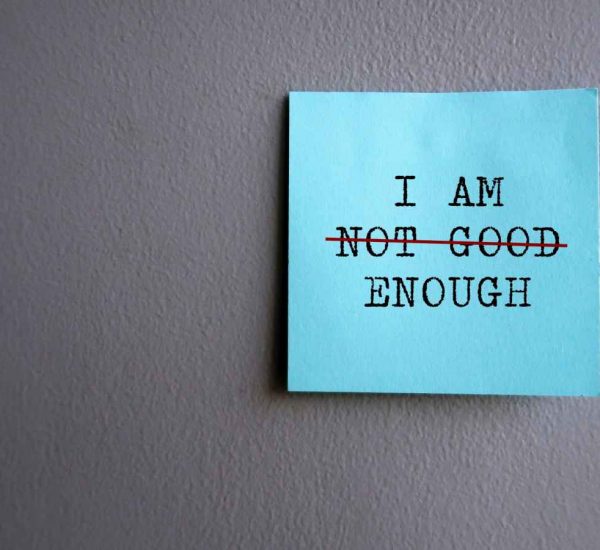Do you want to communicate better? Do you want to know the qualities of an effective communicator? And do you want to have effective communication skills?
Whether at the workplace or in personal relationships, effective communication skills are vital to helping you understand and be understood by others. So, if you want to excel at work or in personal relationships, you need to practice these skills. Avoid misunderstandings and steer clear of miscommunications with effective communication techniques. Improve your personal & professional relationships with it. But, before diving into it let me shed some light on what it is, its importance, and its types.
What is effective communication?
The word communication means ‘to share. The act of conveying messages through mutually understood language is called communication. Now, effective communication means sharing information that is being understood too. But, what is the importance of effective communication? And why are we emphasizing on it that much? As it’s obvious that it is effective, so it minimizes the chances of misunderstandings. It fosters good relations along with keeping the environment positive. Effective communication is crucial if you want to achieve your goals.
It seems to be a simple phenomenon. But, many underlying techniques will help you communicate effectively. Delivering your ideas in a way that the other person fully understands makes communication effective. However, it does not mean talking endlessly without allowing the other person to say something. Shifting the focus from talking to listening is equally important. According to research, 55% of employees in Italy think that active listening is the most vital skill that a manager should have to promote diversity and inclusion in a company.
So, to communicate effectively you not only have to share information in a mutually understood way. But, you should also be able to focus on the non-verbal signals attached to it too. You should be able to understand the emotions and intentions behind the ideas shared. Finally, you should respond empathetically without being carried away by emotions.
What are the three types of communication?
We can divide communication into three basic types;
a) Verbal communication
In verbal communication, the medium of interaction is oral. You listen to a person and try to understand the meaning of the information. You speak to convey a message or share an idea. It takes place in person or over the phone. It also provides you with the opportunity to share immediate feedback, as compared to other types of communication. This makes it the most effective mode of communication because you can easily convey any message and get quick feedback too.
b) Non-verbal communication
In non-verbal communication, you focus on the body language of a person. You observe a person understand the meaning of the information shared. You look for facial expressions and tone of voice. These non-verbal cues help judge the social skills of a person. Research shows that 55% of communication comes from non-verbal cues. To be an effective communicator, you need to align your verbal and non-verbal language.
C) Written communication
Written communication is conveying information in writing. Whether it be memos, emails, reports, descriptions, manuals, or instant messaging. A well-written piece builds trust and develops a bond between the reader and the writer. It helps in understanding every point. It helps explain every point which you might forget if conveyed otherwise. Written communication is a part of our personal and professional life. It is used formally so you need to convey information concisely, and correctly.
10 effective communication skills
Most of us, struggle to deliver our points correctly without sounding wrong. But, you need not fret about it now. With a little practice, you can master these effective communication skills and be an effective communicator!
1- Be an active listener
Active listening is the topmost effective communication skill. It means to not only listen to what the other person is saying. But, also understand the intentions and emotions behind it. You need to focus on non-verbal cues. Stop whatever you were doing to be engaged in the conversation.
You can never understand the real meaning of a message unless you fully invest your attention. Active listening is not just simple hearing. Often, you take hearing for active listening. But, there’s a lot different in both of them.
You might hear everything when you are doing work or checking your phone. But do you understand it? You forget it the next moment.
Active listening makes you understand emotions. It helps you to empathize with the other person. It helps in building a powerful bond between you. Active listening calms the other person and makes them feel heard. Also, it supports your emotional and physical well-being too.
2- Be empathetic to develop effective communication skills
Be empathetic! There are no two ways about it. Empathy makes you human. You don’t feel like being a cog in the machine. Most of the time, this is the one trait that severely lacks in us. We demand empathy from others, but when it’s our time to reciprocate we don’t do that. But the picture isn’t that gloomy anymore.
Companies and organizations have now realized that the people that work for them are not machines. Everyone has a backstory. Everyone is going through something. If a person isn’t performing well for the past two days you need to show concern for them.
You should care if your friend isn’t as lively and charming as they used to be. Sit with them and ask if they are Ok? If something isn’t bothering them? Be human when interacting with humans.
If a person isn’t willing to discuss at first or tries to hide the pain behind a smile, try to dig in deep. Look into their eyes as the eyes are a way to your soul. Observe their body language and their tone of voice. According to research, effective communication skills are the key to good cancer care.
It implies that a lack of effective communication might lead to distress for patients and their families. It even leads to stress. Thus, health professionals are now formally trained to reduce such consequences.
3- Understand non-verbal cues
Non-verbal cues are just as important, or perhaps more important than verbal language. To be an effective communicator, observe the facial expressions, body language, tone, and pace of the voice. Your gestures, eye contact, and other non-verbal cues tell people more about what you are trying to say than just verbal communication can.
For this reason, a psychologist is a part of every job interview panel. They observe your postures to get a better read of you. You can easily tell if a person is confident or nervous by looking at their eyes and hands. A confident person is more likely to maintain eye contact and an open body posture. While a nervous person will avoid eye contact or have a shaky voice.
As much as you observe the other person you should be conscious of your body language too. You can enhance effective communication by using open body language. Use positive body gestures like nodding your head when you agree with someone. Pat your friend’s shoulder the next time you want to encourage them or appreciate them. Understanding non-verbal cues will prove beneficial in the long run.
4- Be confident to develop effective communication skills
When I am asked, ‘What are your communication strengths?’ I reply with one word i.e. ‘Confidence’. Being Confident is a beneficial communication skill in the workplace. It not only makes you a desirable employee but also makes you inspiring personally.
Confidence doesn’t have to come from a place of arrogance. You can be confident and humble at the same time. Confidence is your belief in yourself or something that you value. In the workplace, it refers to knowing your craft and skills. It means believing in your abilities. It’s knowing what your skills and expertise lie in.
So, if you are thinking about how to improve communication skills in the workplace. Stop thinking and start being confident. Because coyness won’t let you perform fully or do what you want. Be confident if you want to be successful in life. Be confident to achieve whatever you wish for. Confidence lets you showcase your full potential. It helps in improving your leadership skills reducing stress and boosting a positive mindset. Thus, never let regret seep in just because you couldn’t achieve something as you were low on confidence.
Related: How to be confident
5- Know your audience
How do you communicate clearly?
One of the most effective communication skills is to know who you are communicating with. You should tailor your conversation according to the person you interact with. You can’t be as formal while communicating with your friend as you are in your office. Also, you can’t use the same vocabulary while talking to the house help that you use in your formal interactions. Similarly, your formal email has to differ from a WhatsApp message.
Think about the person to who you want to speak and pick the right medium to interact with them. For example, if you have to communicate with a potential employee, then sending a formal email might be a better option than a text message. You should know which medium will suit a particular person.
Also, if someone is a text person, prefer communicating with them by text rather than on call. People will appreciate you for being so thoughtful regarding your interactions. They will also respect your boundaries and be considerate while interacting with you.
6- Be respectful to develop effective communication skills
Seeking respect demands being respectful. Being respectful means giving value and appreciating others despite their status or class. Giving value to others’ opinions or ideas makes you a respectful person.
This will foster an environment of mutual respect where every worker from the highest tier to the lowest will have respect for each other. So, to establish effective communication be respectful. Know when to start a conversation. Do not interrupt when someone else is speaking.
Wait for your turn. Let a person finish their statement. Value their opinions and ideas. Hold back judgment. You are not supposed to agree with every opinion. But you should not be aggressive about it or dismiss their viewpoint AT ALL. Try to understand their thought process and disagree politely.
Besides that, learn how to stay on topic. Don’t ask irrelevant questions. Stop checking your phone when someone is talking to you. Maintain eye contact. Last, don’t think about what you’ll say next. Because if you are thinking about something else, it will be visible on your face.
7- Give and take feedback with a positive attitude
Feedbacks are necessary, even if you dislike them. Learn to give and take feedback, even with a pinch of salt. You can never know what your strengths or weaknesses are. Or whether you are heading in the right direction. Feedback gives you a sense of achievement too.
You realize that you’ve come a long way which gives you a sense of fulfillment. Along with that, feedback gives you an insight into the problem or project at hand. It gives a better solution to the problem. It helps in looking at a task from a unique perspective. Moreover, it is also helpful in strengthening your skills. You learn to be patient and see it as a learning opportunity.
Effective communication is only possible when you have an aptitude for giving and receiving feedback. For that, you need to encourage other people’s input. You should ask questions about your performance when it comes to communication skills in the workplace.
You should learn how to give feedback that’s encouraging. Even saying something as small as ‘good job’ is feedback. So, start with a positive sentence and then come to the actual point, but without sounding disrespectful.
8- Smiling is an effective communication skill
Coming to my favorite part of developing effective communication skills. Smile often while having a conversation with someone. You don’t have to act all serious unless it’s a very serious issue.
No one wants to interact with a person having a constant frown on their forehead. And you don’t want to be that person right? So, relax your jaw muscles a bit. Smile often as it keeps the atmosphere light and positive. It not only exudes confidence and self-assurance.
But it also has immense health benefits. It releases the ‘Feel-good’ hormones that instantly brighten your mood. Further, experts believe that smiling during an interview makes you seem like an easy-going and enthusiastic person. This makes you highly desirable and increases your chances of being hired.
As Mother Teresa said,
‘Peace begins with a smile.’
So, smile more often because it’s free therapy!
Conclusion;
Communication is a part of our daily life. Learning effective communication skills will improve your personal and professional life a lot. It requires time and patience, but its benefits will be far more than the initial struggle. So, observe the non-verbal cues, be an engaged listener, and practice other skills to be an effective communicator all your life.




